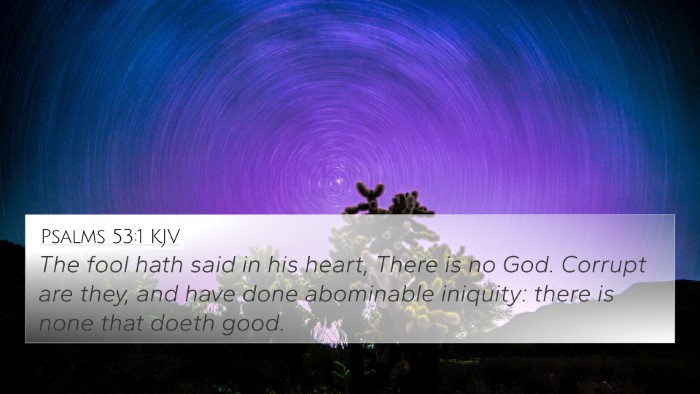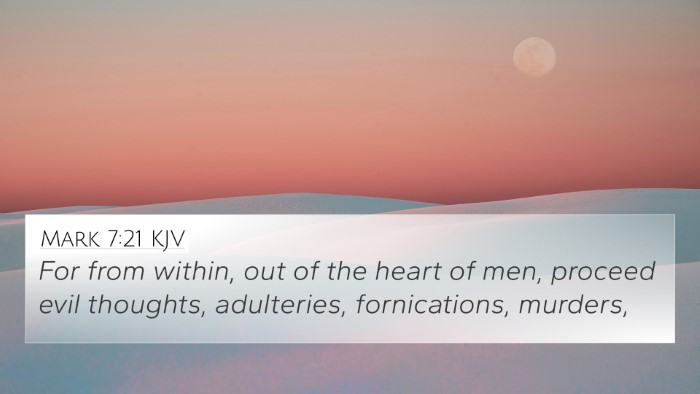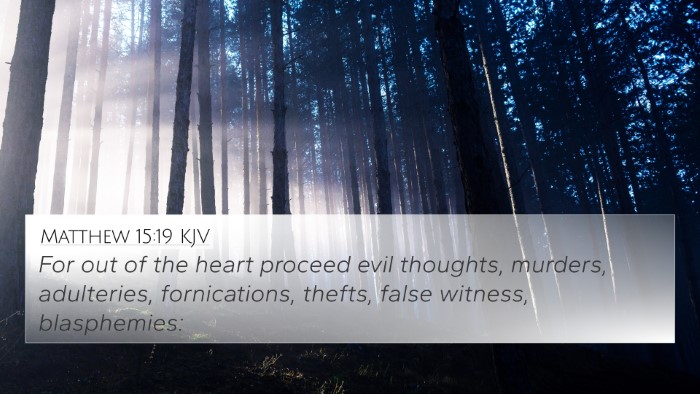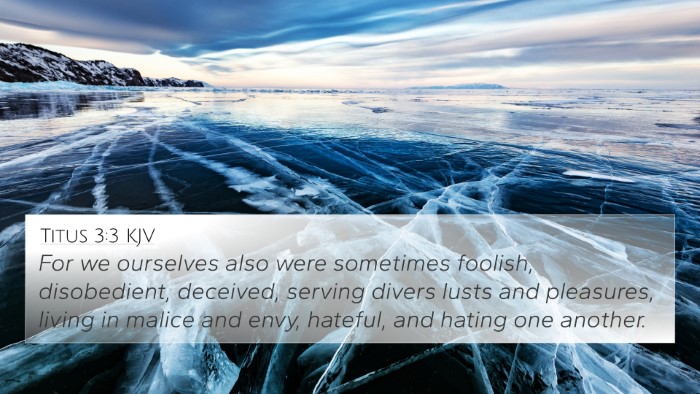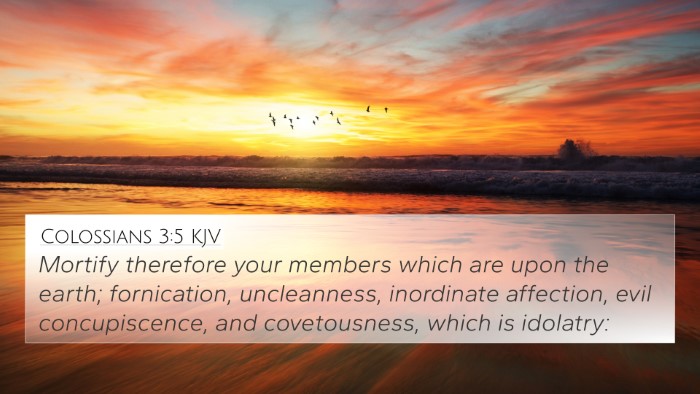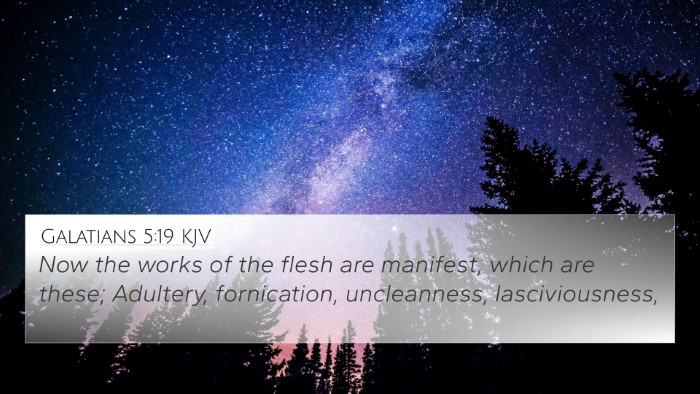Understanding Romans 3:10
Romans 3:10 states, "As it is written, There is none righteous, no, not one." This verse serves as a foundational element in Christian theology, particularly in understanding the nature of humanity and the need for salvation through Christ.
Overview of Romans 3:10
This verse emphasizes the universal condition of sinfulness among humanity, as noted by commentators such as Matthew Henry, Adam Clarke, and Albert Barnes.
Theological Implications
Henry stresses that this declaration of unrighteousness highlights the necessity of divine grace. He elaborates that without acknowledgment of our sinful state, we cannot fully appreciate the grace offered through Jesus Christ.
Clarke further expands on this by presenting that Paul quotes the Old Testament to support his assertions about human depravity. Clarke notes the importance of understanding the law’s role in revealing sin, allowing us to see our need for a Savior.
Barnes concurs, mentioning that this verse serves as a summary of human failure and incapacity to attain righteousness through works. Instead, it points convincingly towards reliance on faith for justification.
Cross-Referencing Biblical Texts
To achieve a deeper understanding of Romans 3:10, it is beneficial to explore Bible verse cross-references. Below are key verses that provide a richer context:
- Ecclesiastes 7:20: "For there is not a just man upon earth, that doeth good, and sinneth not." - This echoes the thought of universal sinfulness.
- Isaiah 53:6: "All we like sheep have gone astray; we have turned every one to his own way..." - This offers an insight into the straying nature of humanity.
- Galatians 2:16: "...a man is not justified by the works of the law, but by the faith of Jesus Christ..." - This connects righteousness with faith as opposed to our works.
- Romans 3:23: "For all have sinned, and come short of the glory of God." - This repeats the theme of universal sinfulness.
- Psalm 14:3: "They are all gone aside, they are altogether become filthy..." - This verse parallels Romans 3:10 in highlighting the lack of righteousness.
- 1 John 1:8: "If we say that we have no sin, we deceive ourselves..." - This reinforces the concept of inherent sin in all humans.
- Job 25:4: "How then can man be justified with God? or how can he be clean that is born of a woman?" - This questions the condition of humanity before God.
Interpreting Biblical Themes
The theme of righteousness and sin is crucial in linking various Bible verses that relate to each other. Many of the verses cited provide valuable insight into the plight of humanity.
Through cross-referencing Biblical texts, we can enhance our comprehension and identify the connections between Old and New Testament teachings.
Application in Daily Life
Romans 3:10 is not merely a theological statement; it has practical implications for believers. Recognizing our own sinfulness leads to humility and a deeper appreciation for the grace and forgiveness available through Jesus Christ.
Conclusion
In conclusion, Romans 3:10 serves as a pivotal verse in understanding the nature of sin and the necessity for salvation. By exploring its connections and implications, believers can cultivate a richer faith experience.
Utilizing resources such as Bible cross-reference guides and comprehensive Bible cross-reference materials can deepen understanding and facilitate cross-reference Bible study methods.



